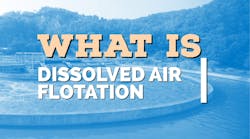A recent decision by the California Court of Appeals in Los Angeles will bring funding to local communities to help pay for state mandates relating to clean storm water and pollution-prevention measures. The ruling will help usher an array of clean storm water and anti-pollution programs in communities throughout the region.
The California Court of Appeals in ruled that a statute preventing municipalities from obtaining state funding for new or more expensive programs mandated by the State Water Resources Control Board, or regional water quality control boards, is unconstitutional.
The unanimous opinion by the Court of Appeals affirmed a May 2005 ruling by Los Angeles Superior Court Judge Victoria Chaney, holding that Government Code Section 17516 conflicted with the California Constitution.
Article XIIIB, section 6 of the constitution provides that whenever the legislature or a state agency “mandates a new program or higher level of service on any local government,” the state must provide a “subvention” of state funds to reimburse the local government “for the costs of the program or increased level of service.” This provision was added to the California constitution by a voter initiative in 1979.
The Government Code section declared unconstitutional by the Court of Appeals exempted from eligibility for state reimbursement various orders or regulations issued by the State Water Board or regional boards. As a result, local governments had been prevented from arguing to the Commission on State Mandates, which determines whether state funding is appropriate, that the cost of complying with these orders or regulations was recoverable as an “unfunded state mandate.”
In recent years, the state and regional water boards have imposed a number of new requirements on counties and cities across the state, including requirements relating to municipal storm water permits and other requirements addressing pollutants in storm water. The cost of these requirements is in the billions of dollars, yet relatively little state bond funding has been available.
As a result, the County of Los Angeles and 22 cities sued the Commission on State Mandates, arguing that the Government Code section conflicted with the constitutional provision allowing for state funding. Judge Chaney agreed, and the Commission appealed her ruling to the Court of Appeals.
The ruling by the Court of Appeals means local governments will now be able to seek reimbursement for the cost of programs required by the State Water Board or the regional boards.
“It’s a victory for taxpayers, and a victory for the environment,” said Larry Forester, who heads the Coalition for Practical Regulation, a membership organization committed to supporting the environment through state-funded programs. “Communities will not be forced to choose between funding clean water programs and essential services like police and fire. Better still, this ruling will greatly improve the environment because cities will be able to adopt more cost-effective pollution prevention programs.”
Source: Coalition for Practical Regulation


